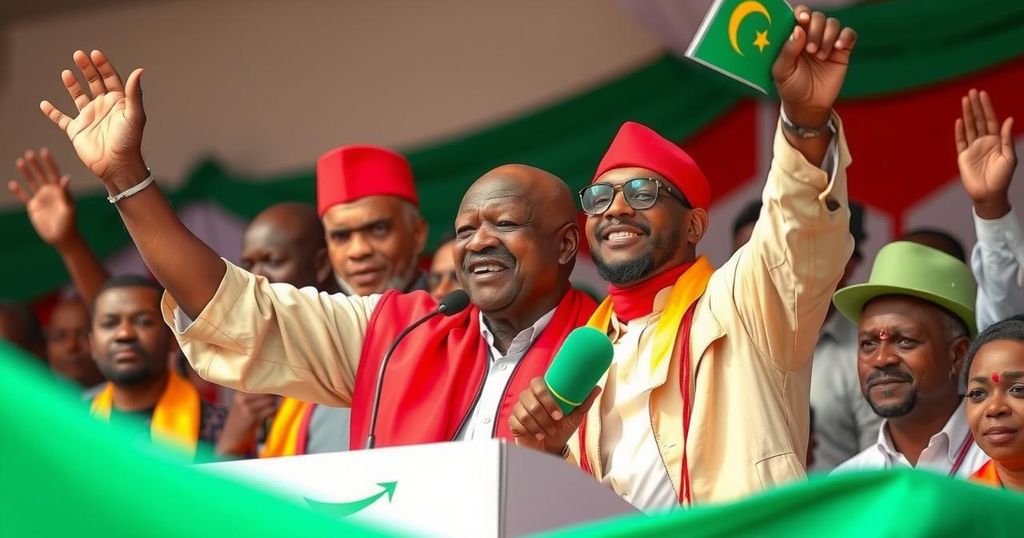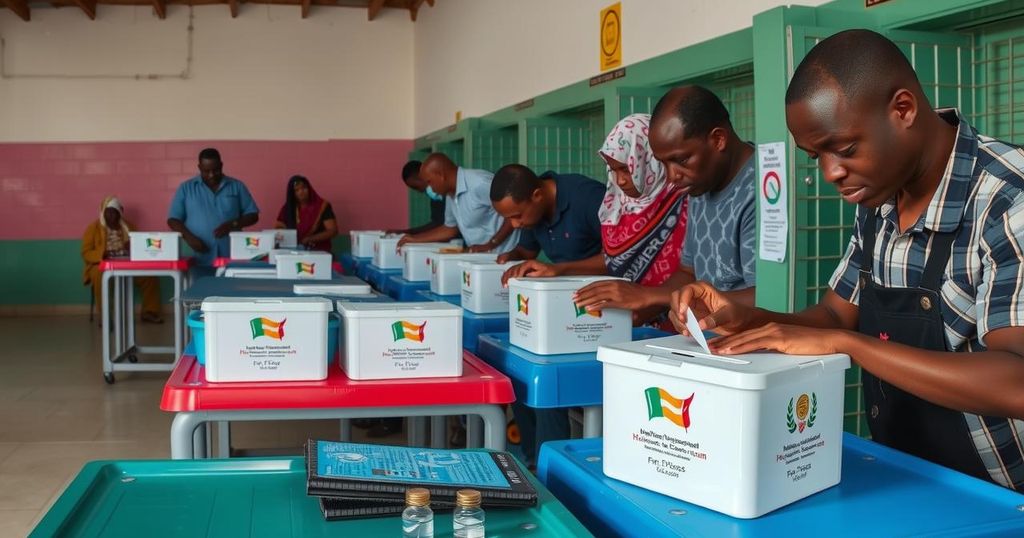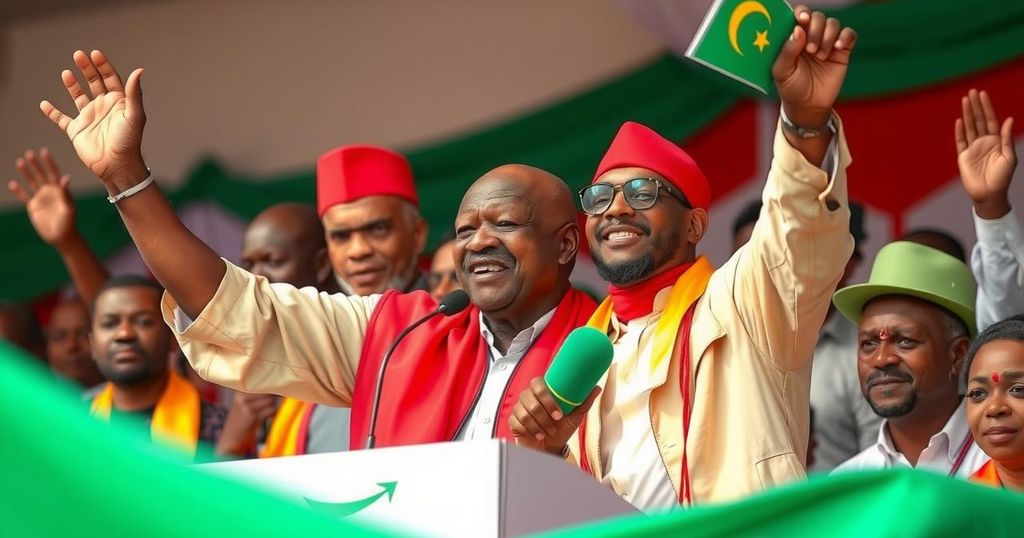World news
2024 ELECTIONS, AFRICA, AHMED BARTCHIRET, ASIA, BOKO HARAM, BURKINA FASO, CHAD, CHINA, COMMISSION, DEBY, ELECTIONS, EUROPE, FRANCE, GOVERNANCE, GOVERNMENT, MAHA, MAHAMAT DEBY, MAHAMAT IDRISS DEBY, MALI, NATIONAL ASSEMBLY, PARLIAMENTARY SEATS, PATRIOTIC SALVATION MOVEMENT, VOTER TURNOUT
Ethan Kumar
0 Comments
Chad’s Ruling Party Claims Electoral Victory Amid Opposition Boycott
Chad’s ruling Patriotic Salvation Movement secured 124 of 188 National Assembly seats in a parliamentary election largely boycotted by opposition parties. The election, held on December 29, had a participation rate of 51.56%, raising concerns about its legitimacy. Opposition parties criticized the election as a mere charade, echoing similar sentiments from a disputed presidential election last year, while the government faces various security challenges and shifts in military relations with France.
Chad’s ruling party, the Patriotic Salvation Movement (PSM), has reportedly secured a dominant position in the National Assembly following a parliamentary election that opposition parties largely boycotted. According to provisional results disclosed by electoral commission head Ahmed Bartchiret, the PSM won 124 out of 188 seats. This election marked Chad’s first parliamentary poll in over a decade, yet the participation rate was only 51.56 percent, indicating skepticism regarding the electoral process’s authenticity. The December 29 election was presented by President Mahamat Idriss Deby as a critical step towards establishing a more democratic governance model in Chad.
The electoral process faced significant criticism, particularly from opposition groups who labeled the election a “charade” and feared a repetition of the disputed presidential election held last year, which was also marred by accusations of inaccuracy from electoral observers. The boycott was widespread, with over ten parties withdrawing from the election, including the notable Transformers party which had previously placed second in the presidential race. Undoubtedly, this election occurred during a tumultuous period in Chad, presenting various security challenges including attacks from the Boko Haram insurgents and the notable shift in military relations with France, where Chad has recently moved to end its longstanding cooperation with its former colonial power. Moreover, the government announced a thwarted attack on the presidency described as a “destabilisation attempt.”
In light of these developments, President Deby’s administration reiterated its commitment to foster decentralization and enhance democratic practices, although this remains subject to significant public and international scrutiny due to the election’s controversial nature. These outcomes highlight critical concerns regarding governance, stability, and the political landscape in Chad moving forward.
Chad has grappled with political instability and military governance since the death of its long-term leader, Idriss Deby Itno, in April 2021. His son, Mahamat Idriss Deby, ascended to power amid this turmoil. The electoral environment has been characterized by a lack of trust and allegations of electoral misconduct, significantly exacerbated by the recent parliamentary elections. The call for decentralization reflects a desire among citizens for greater representation and power distribution across local entities, but the boycotted election has cast doubt on the legitimacy of this process. Furthermore, the backdrop of regional instability and security threats poses challenges that complicate Chad’s governance and political transitions.
The recent parliamentary election in Chad has underscored significant tensions within the political landscape as the ruling Patriotic Salvation Movement has emerged with a commanding majority amidst widespread opposition boycotts. The reported low voter turnout and the repeated labeling of the election as a ‘charade’ by opposition groups raise critical concerns about the legitimacy of the electoral process, threatening the claimed trajectory towards democratic governance. Amidst security threats and changing international relations, Chad’s political future remains uncertain as observers continue to monitor the unfolding circumstances.
Original Source: www.aljazeera.com




Post Comment